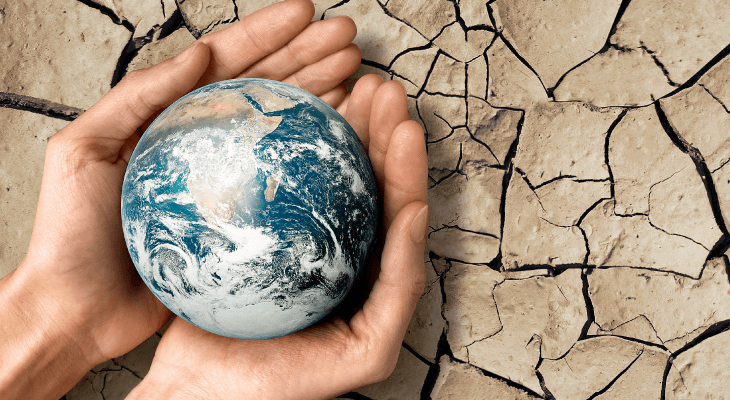The Complete Guide to Studying Environmental Science in Malaysia
What is Environmental Science all about? Learn what the course entails, subjects offered and career opportunities with this comprehensive guide.
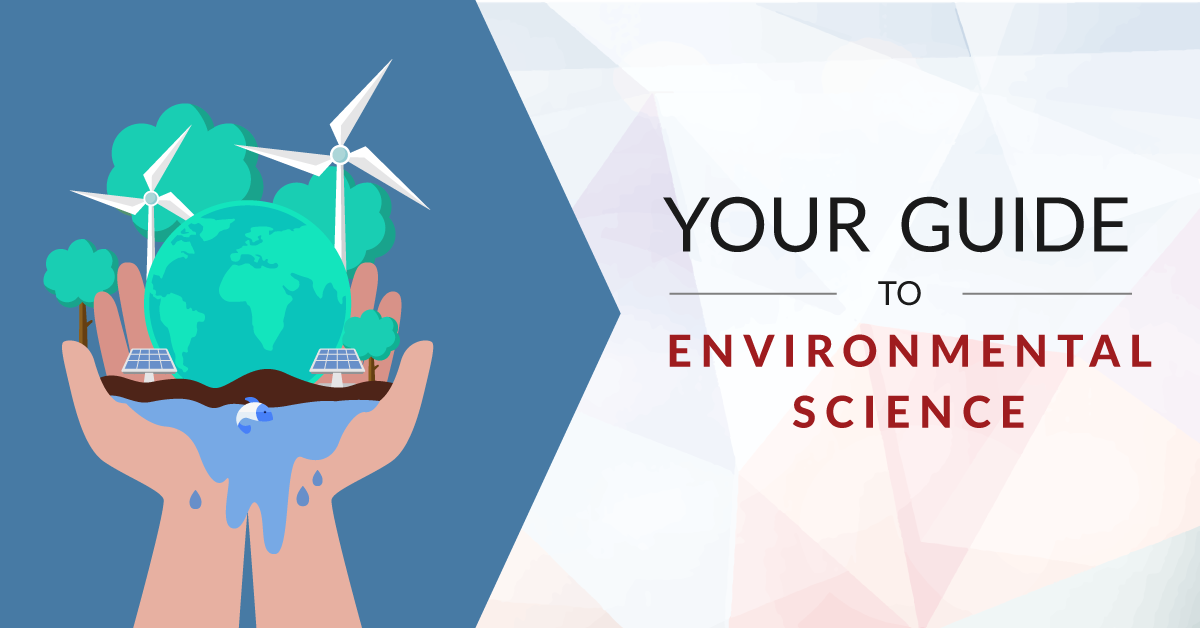
Are you passionate about the environment? Do you consider yourself an environmentalist who advocates for sustainability for yourself and the community you’re in? Has your fascination with learning how to create a cleaner environment led you to consider becoming an environmental scientist in Malaysia? Well, you’ve come to the right page.
If you’re excited to learn more about global environment change, policies, conservation and sustainability, pursuing an environmental science course may be the right choice for you.
In this guide, you will find everything you need to know about studying an environmental science degree in Malaysia. You’ll learn what environmental science is about, what jobs are available to you as an environmental science graduate and which universities offer the best environmental science degrees.

University of Nottingham Malaysia
Environmental Science BSc Hons
✓Ranked #20 in the UK for Geography and Environmental Science in the Subject League Table 2025, The Complete University Guide
#1. What is Environmental Science?
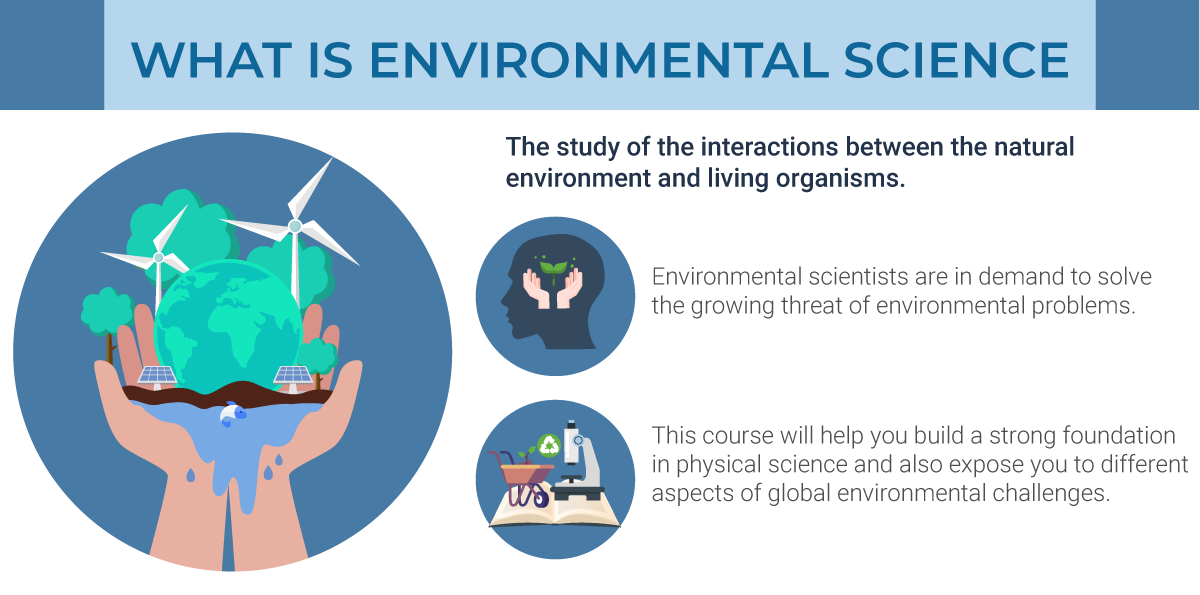 Environmental science is the study of the interactions between the natural environment and living organisms. The field seeks to understand the physical, chemical and biological processes and systems of the environment and how they impact people, plants and animals.
Environmental science is the study of the interactions between the natural environment and living organisms. The field seeks to understand the physical, chemical and biological processes and systems of the environment and how they impact people, plants and animals.
With the growing threat of environmental problems such as climate change, pollution and biodiversity loss, it is more important than ever to take action that will change the world for the better. Environmental scientists help to solve environmental issues by conducting field surveys to collect data, conducting research and developing conceptual models, and writing reports to present research findings and recommendations.
As part of your studies in environmental science, you will build a strong foundation in physical science, which will provide you with the knowledge you need to make informed judgements about environmental issues. You will also learn about the broader social, political and economic aspects of global environmental challenges.

#2. Entry Requirements for Environmental Science
a) What are the subjects required to study environmental science?
In general, you need to have studied these subjects at SPM level or equivalent to pursue environmental science:
- Mathematics
- Two Science subjects from Chemistry, Biology and Physics
As for A Levels, STPM or equivalent, you need to take the following subjects if you want to study a Degree in Environmental Science:
- Two Science subjects from Chemistry, Biology and Physics
b) Environmental Science Degree requirements
To pursue a Degree in Environmental Science, you need to complete a pre-university programme and meet the entry requirements:
- A Levels: Minimum 3Cs, including 2 Science subjects from Chemistry, Biology or Physics
- STPM: Minimum 2Bs in 2 Science subjects from Chemistry, Biology or Physics
- Australian Matriculation: Minimum of ATAR 65
- Foundation in Science: Minimum CGPA of 3.00
- Diploma: Minimum CGPA of 3.00
In addition to that, you will also require a credit in Mathematics at SPM or equivalent.
#3. Studying Environmental Science in Malaysia
a) What subjects will you study in environmental science?
The study of environmental science is organised around 3 major themes — understanding environmental systems and processes, investigating environmental changes and impact, and developing solutions for mitigation.
In addition to building your scientific knowledge, you will also pick up lab skills such as chemistry and biology lab techniques, skills in data analysis, communication skills through report writing and presentations, research skills, and programming skills for modelling and data analysis.
Here are some of the subjects you may cover as part of your environment science programme:
- Global environmental processes
- Environmental biology and chemistry
- Ecology of natural and managed ecosystems
- Forest environments
- Tropical environments
- Aquatic systems
- Bioinformatics
- Environmental modelling
- Ecotourism
- Environmental law, policy and economics
- Environmental pollution and remediation
Fieldwork is also a crucial element of environmental science. You will experience different habitats, ecosystems and land formations (e.g. terrestrial, marine, freshwater) through field trips where you will learn how to collect samples, conduct surveys and analyse environmental data.
Additionally, you may also be required to undergo an undergraduate research project and/or an internship.
b) How long is an environmental science course?
A Degree in Environmental Science typically takes about 3 years to complete.
c) How much does it cost to study Environmental Science in Malaysia?
An Environmental Science programme could range from RM35,475 – RM135,315.
#4. Your Education Pathway for Environmental Science
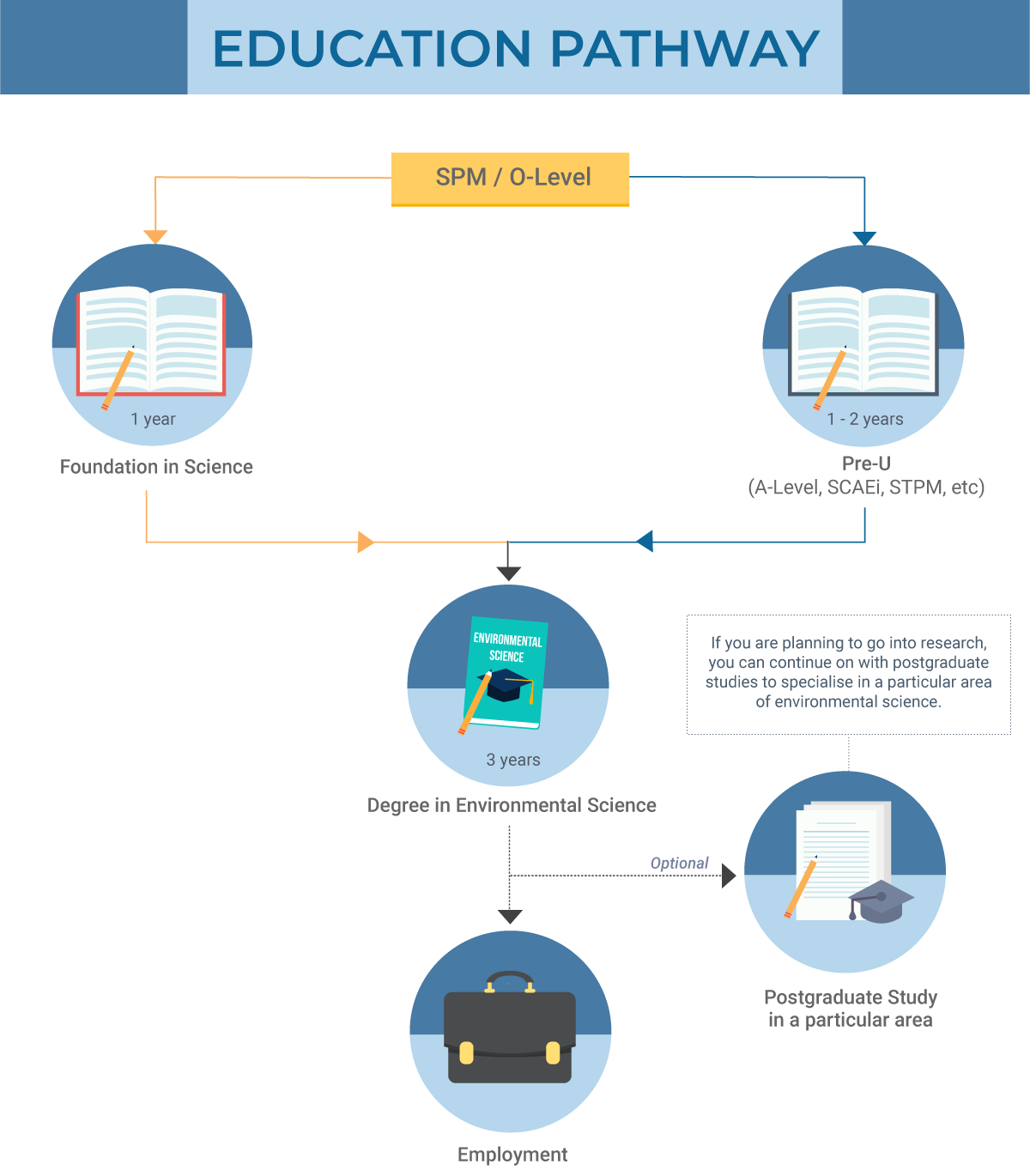 Upon the completion of your SPM or equivalent qualification, you can opt to enrol into a pre-university (STPM, A Levels, etc.) or Foundation in Science programme.
Upon the completion of your SPM or equivalent qualification, you can opt to enrol into a pre-university (STPM, A Levels, etc.) or Foundation in Science programme.
Completing a pre-university or a foundation programme will enable you to proceed to an Environmental Science Degree.
If you are planning to go into research, you can continue on with postgraduate studies to specialise in a particular area of environmental science.

#5. Should You Study Environmental Science?
 a) Is Environmental Science right for you?
a) Is Environmental Science right for you?
If you’re wondering whether you should pursue this programme, here are some questions to think about:
- Do you consider yourself an investigative person with critical analytical skills?
- Do you enjoy learning about global and environmental issues?
- Are you comfortable working in labs to analyse environmental data?
- Are you good with numbers and performing data analysis?
- Will you be comfortable working outdoors in all sorts of environments?
- Do you want to make a positive impact on the conservation and sustainability of our planet?
If you answered yes to most of these questions, this investigative course may be right for you!
b) Skills required to pursue environmental science
Here are some key skills a good environmental science graduate should have:
- Scientific knowledge and awareness on environmental issues
- Strong research skills to gather, analyse and report environmental data
- Numeracy and data analysis skills
- Ability to think critically and approach issues from multiple perspectives
- Strong written and verbal communication skills
- Ability to work both collaboratively and independently
- Adaptable and can work in any environmental setting

University of Nottingham Malaysia
Environmental Science BSc Hons
✓Ranked #20 in the UK for Geography and Environmental Science in the Subject League Table 2025, The Complete University Guide
#6. Jobs You Can Get with an Environmental Science Degree
With a Degree in Environmental Science, you can seek employment opportunities in various environmental-related fields. This includes environmental consultancies, nature conservation agencies, environmental protection agencies, and local government departments.
Here are some careers you can pursue with an environmental science qualification:
- Environmental Scientist / Officer
- Nature Conservation Officer
- Water Quality Scientist
- Environmental Data Analyst
- Environmental Consultant
- Environmental Entrepreneur
- Research Scientist
- Academician
#7. Best Institutions for Environmental Science in Malaysia
If environmental science is where your passion lies, then check out some of the best institutions for environmental science in Malaysia.
University of Nottingham Malaysia
Semenyih, Selangor
Environmental Science BSc Hons
Intake
Sep
Tuition Fees
RM160,500
Get RM300 Rebate when you enrol through EduAdvisor! T&C apply.
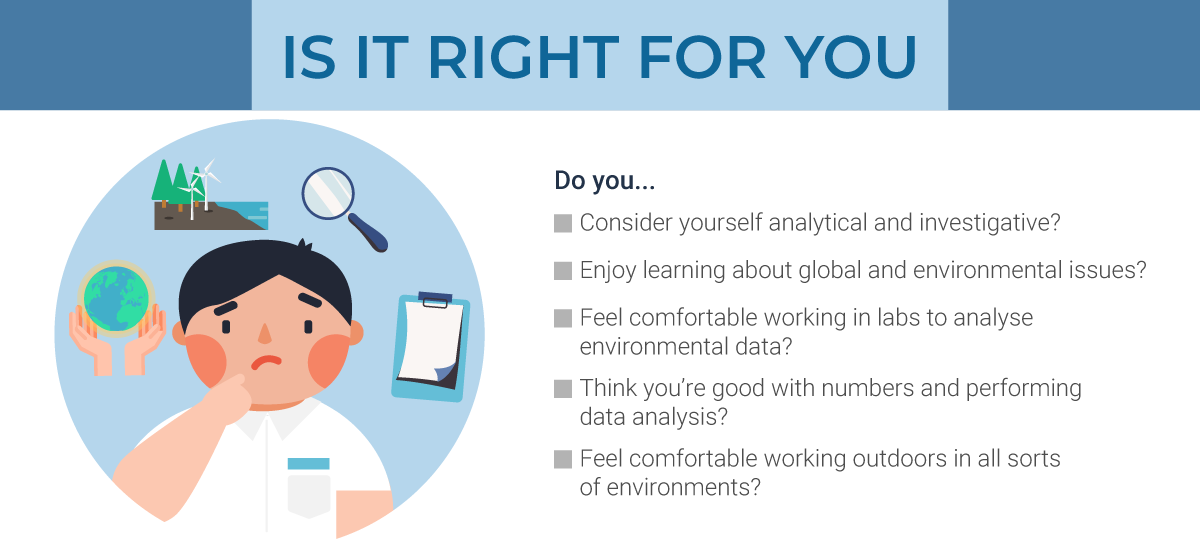 a) Is Environmental Science right for you?
a) Is Environmental Science right for you?



